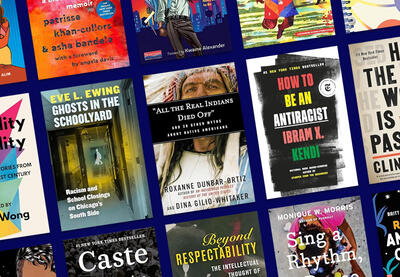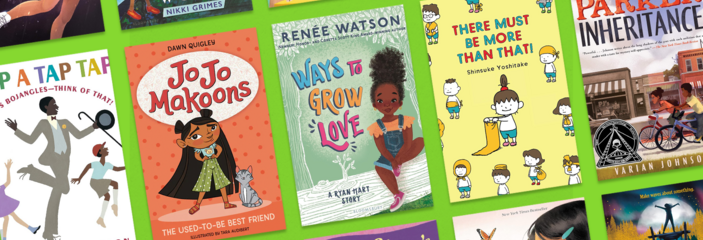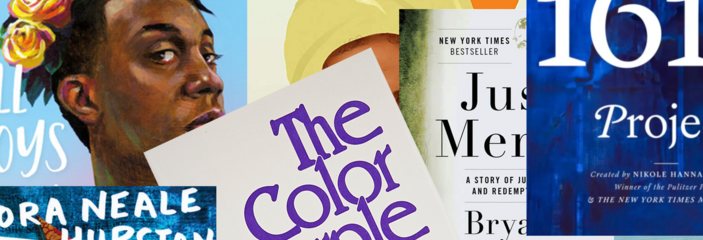Learning can help us to resist hate and bias and counter limited narratives that have traditionally excluded diverse perspectives.
The current attacks on efforts to build a society in which everyone is valued underscore the need to support children and families. Our collective responsibility is to counter disinformation, uplift accurate and honest history, and engage our communities to resist hate.
These LFJ book reviews encourage us all to keep reading and learning together for liberation.
“You may write me down in history
With your bitter, twisted lies,
You may trod me in the very dirt
But still, like dust, I’ll rise.”
– Maya Angelou
Reading Together: Books for Children
We offer some of our favorite book recommendations for children (elementary to middle grades) that affirm identities, celebrate diversity and highlight justice.
Reading for Justice: Books for Teens and Young Adults
To build bridges of understanding and celebrate our diversity and shared humanity, let’s read together! We offer some of our favorite book reviews for teens and young adults.
Book Reviews for Adult Readers
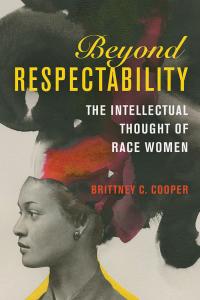
When Black women found themselves free from slavery but still extremely vulnerable and disenfranchised in their Black, female bodies, how did they add their voices to movements for justice and equality? With Beyond Respectability: The Intellectual Thought of Race Women, Brittney C. Cooper charts the journey of Black women thinkers’ meticulous and unorthodox cerebral work to uplift their race and gender, from the post-slavery era through the 1970s. They made the personal political and intellectual—and formed foundational social theories that predate such concepts as intersectionality. These days especially, it’s time to take Black women seriously as knowledge producers.
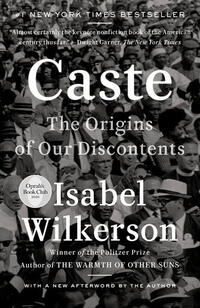
Radical Empathy. That’s the primary remedy for the realization of a just society that Pulitzer Prize-winning author Isabel Wilkerson identifies in Caste: The Origins of Our Discontents. This 2020 publication is fundamental reading for any person with a genuine interest in understanding what’s at stake in efforts toward social justice and for understanding the swift and astoundingly complex backlash—including the recent fervor for book bans in K-12 education—against gains made by people of the global majority, LGBTQ+ people and anyone else who finds themselves relegated to societal margins. Any mystery pertaining to deadly social hierarchies fades as Wilkerson deftly demystifies the notion of caste in a user-friendly fashion.
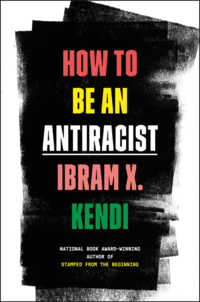
“The opposite of ‘racist’ isn’t ‘not racist.’ It is ‘antiracist.’” This idea is the beating heart of Ibram X. Kendi’s How to Be an Antiracist: Our decisions, actions and thought processes can either maintain racist systems or actively work to dismantle them. Both challenging and accessible, Kendi's book weaves history, personal experiences and contextual analysis of policies to push readers to think critically about the role that race has played in society and their lived experiences. His perspective is a necessary addition to the conversation about how to make the world more equitable and just.
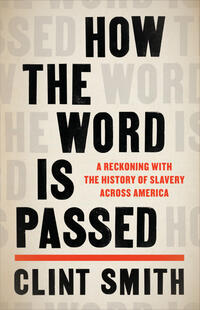
In How the Word is Passed: A Reckoning With the History of Slavery Across America, Clint Smith takes the reader on an amazing journey. Starting from his hometown of New Orleans and traveling to places including Monticello, Whitney Plantation, Angola Prison, Blandford Cemetery and more, he highlights how stories of slavery were constructed in support of “white comfort.” He challenges readers to confront the history of slavery “even if it means shattering the stories you have been told throughout your life.”

“I know the next time I’m at an event and take a picture with someone, I won’t be moving my cane out of the shot,” writes Zipporah Arielle. Visibility: It can be absolutely life changing. In Disability Visibility: First-Person Stories from the Twenty-First Century, an anthology edited by Alice Wong, more than 30 disabled authors tell their stories. Filled with emotional testimonies, essays, blog posts and more, the writers explore what it means to be disabled, offering strong representation and education for readers.
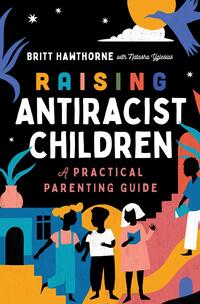
In Raising Antiracist Children: A Practical Parenting Guide, Britt Hawthorne, nationally recognized anti-racist educator and author, expresses the sentiment in her note to parents that, “It is never too early to start creating a home rooted in justice, compassion, and love.” We agree—it is never too early for children to learn to build a society with those values. Nor is it ever too late for adults to honestly confront our country’s history and our own biases to shape a more just future. Hawthorne thoughtful guidance provides insights on raising children to become global citizens.
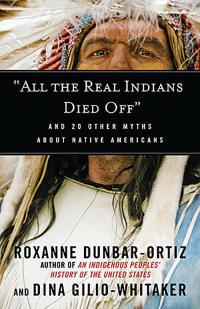
Myths surrounding Native American history abound, from “Thanksgiving proves the Indians welcomed the Pilgrims” to “Columbus discovered America.” In “All the Real Indians Died Off”: And 20 Other Myths About Native Americans, Roxanne Dunbar-Ortiz and Dina Gilio-Whitaker tackle and disprove commonly held, inaccurate and limited understandings of Indigenous peoples. In the process, they expose the origins of these myths and examine the broader landscape of Native people in our country—past and present.
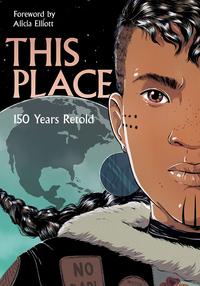
It’s hard to fathom packing 150 years of Indigenous Canadian history into 10 stories spread across fewer than 300 pages. This Place: 150 Years Retold is a collection of tales in comic book style. However, this is more than a graphic novel—it’s an extraordinary history text (with a dash of speculative fiction) that animates obscured narratives and will enchant and educate all ages. The resources that accompany this book opens opportunities for using these stories to teach young people.
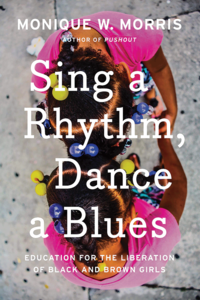
In Sing a Rhythm, Dance a Blues: Education for the Liberation of Black and Brown Girls, Monique W. Morris puts forth a solutions-oriented approach to addressing how Black and Brown girls are affected by school and disciplinary policies. Morris shares inspirational stories of educators across the country who are putting the needs and well-being of Black and Brown girls at the center so that readers may follow in their footsteps.
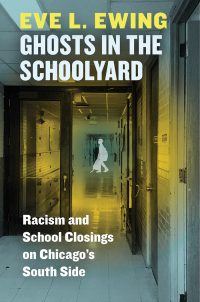
In 2013, Chicago Public Schools announced the closure of 54 schools. As author Eve L. Ewing notes, “90 percent of [those] schools were majority Black, and 71 percent had mostly Black teachers—a big deal in a country where 84 percent of public school teachers are white.” In Ghosts in the Schoolyard: Racism and School Closings on Chicago’s South Side, Ewing documents the accretion of racist policies that led to four such closings in Bronzeville and records the dedication and activism of a community where “the value of a school is directly related to its nurture and support of lasting human relationships.”
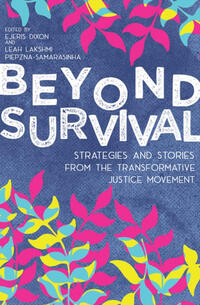
Beyond Survival: Strategies and Stories From the Transformative Justice Movement, edited by Ejeris Dixon and Leah Lakshmi Piepzna-Samarasinha, is a vital resource that helps readers more deeply understand transformative justice and learn practical ideas for implementing it in their own communities. The collection of essays provides an intimate look into what has and hasn’t worked in diverse communities across the country.
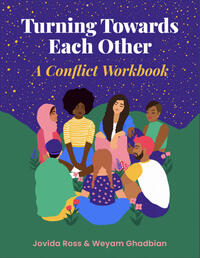
Jovida Ross and Weyam Ghadbian’s Turning Towards Each Other: A Conflict Workbook is a transformational resource for any group engaged in social-change work. A collection of personal and group explorations grounded in embodied practices, Turning Towards Each Other guides us in examining what’s underneath our habitual responses to conflict and their connection to oppressive structures we are so tirelessly working to upend. A critical resource for beginning to shift the ways we interact with conflict and each other.
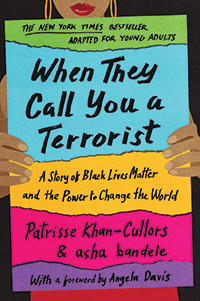
In her searing memoir, written with Asha Bandele, Black Lives Matter co-founder Patrisse Khan-Cullors invokes communal love and political resistance to jolt the public out of complacency and into awakening. With grace and vulnerability, she recounts in When They Call You a Terrorist an upbringing plagued by interlocking oppressions and generational trauma, and illustrates the gut-wrenching power of her movement’s message: Black lives must be recognized as worthy in this world.
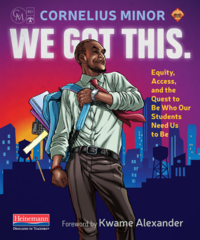
At once memoir, graphic novel and professional development workbook, Cornelius Minor’s debut demolishes the superhero-teacher narrative to redefine what it means to actually embody what students—especially those relegated to the margins—need from their teachers so they can thrive at school and outside it. We Got This: Equity, Access, and the Quest to Be Who Our Students Need Us to Be hinges on this point: “Our journey starts with an understanding that no great good can be done for a people if we do not listen to them first.” Dig in and prepare to listen.
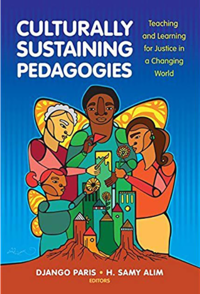
In Culturally Sustaining Pedagogies: Teaching and Learning for Justice in a Changing World, editors Django Paris and H. Samy Alim have curated works by practitioners and researchers to help educators fully understand culturally sustaining pedagogy “for educational justice with students and communities in a changing world.” With multiple examples taken directly from the classroom, authors provide both rich classroom narratives and supporting research to highlight pedagogical practices that value youth and communities of color.
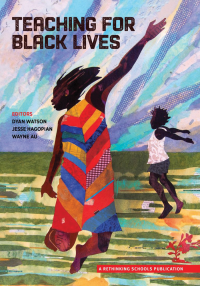
“Black students’ minds and bodies are under attack…” begins Rethinking Schools’ Teaching for Black Lives. Editors Dyan Watson, Jesse Hagopian and Wayne Au have organized a thoughtful and dynamic work that explores how educators have reframed their thinking and teaching about Black experiences in the United States—in ways that humanize Black lives. In an education system that marginalizes Black experiences in both subtle and harsh ways, Teaching for Black Lives provides educators with a tool to teach students about the extraordinary journey of Black Americans and help them affirm and reaffirm their own identities.
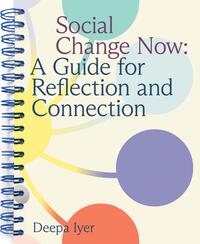
Deepa Iyer’s Social Change Now: A Guide for Reflection and Connection offers guidance for individuals and groups seeking to enact positive social change. Readers identify the role they might play within the social change ecosystems framework. Each of the 10 roles is described in clear detail, with thoughtful reflection prompts for readers to consider and actions they can take to connect with others and build a more just and equitable society.
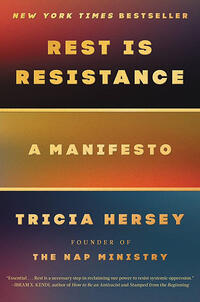
Author Tricia Hersey offers an intervention for the exhausted in Rest Is Resistance: A Manifesto. The artist, poet, theologian and community organizer urges us to reject grind culture and rigid systems that make it difficult to dream or create. With an analysis rooted in Black liberation theology, Hersey asserts that rest is our divine right. She insists that we must rest, not to do more later but to connect with our bodies—sites of liberation—to imagine, invent and heal.
